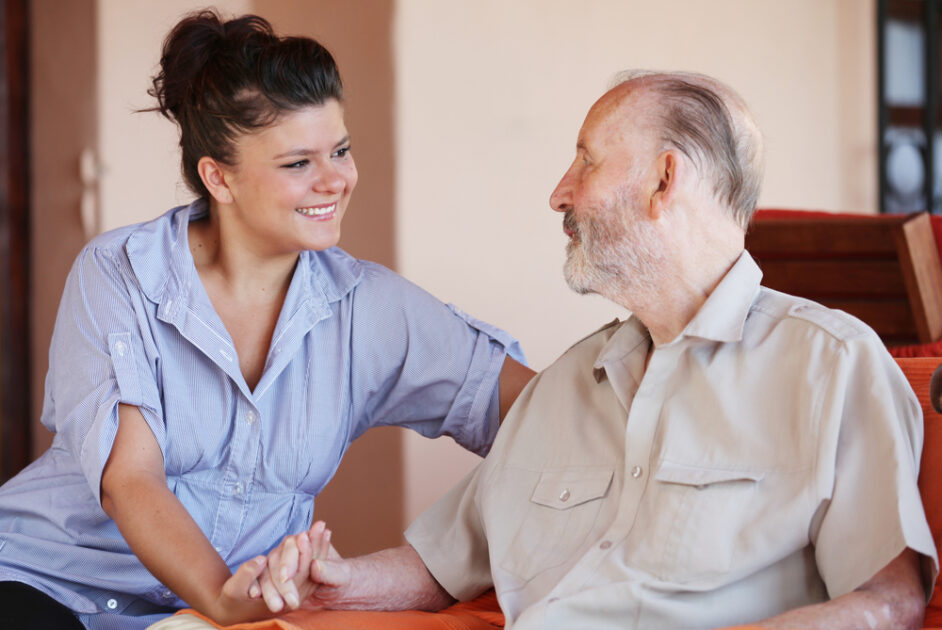What’s life like for a young carer?
Many young Irish people already have a full-time job

A young carer is someone under the age of 18 who is responsible for the needs of an adult who is ill, who has a disability or who is dependent on drugs or alcohol. As a carer, you may have to do a lot of household chores that the adult in your life would normally do, such as cooking, cleaning and grocery shopping.
You may need to help out with medical care, such as changing dressings or giving out medication each day. You may also need to take charge of looking after your siblings. Finally, you may need to provide emotional support to the person you are caring for.
Being a young carer can be very tough. You may feel scared that the person you look after isn’t able to care for you, and you may resent the fact that you have to do so much. You may also have trouble keeping up with your homework or studying for your exams. Finally, you may feel very alone and like you can’t be a ‘normal’ young person. Some young people can also develop health problems from being a carer, such as back pain from lifting the person they care for or stomach problems and insomnia from the stress of caring.
What can you do to help yourself?
- Sort out the practicalities, such as money. If you are a full time carer, you may be entitled to welfare payments such as Carer’s Benefit, Carer’s Allowance or Carer’s Leave. Find out more detailed information on these benefits.
- Enlist the help of others if you can. Yes you are a carer; but you shouldn’t have to spend 24/7 caring. See if you can enlist the help of close friends or relatives to give you a break now and then. Often though, the person you are caring for does not need 24/7 care anyhow, so you can allow yourself a bit of a break.
- Spend time outside the home. Play sports, keep up with hobbies and meet friends. Spending all your time caring will drain you and you may end up physically or mentally ill yourself.
- Look after your health. Exercise, eat well and try to get good sleep. You may even be able to exercise with the person you are caring for. For example, walking is a low impact form of exercise that is beneficial for people suffering with both physical and mental ill health.
- Plan daily treats for yourself. Even something as simple as watching a favourite boxset, Skyping a friend or taking an aromatherapy bath can be beneficial. As tough as it is, try to choose healthy outlets for treating yourself rather than turning to alcohol, drugs or junk food. If you feel these are becoming a problem for you, then visit our help section.
- Take advantage of respite care if this is available to you. Respite care involves someone else caring for the person you normally look after, for anything from a few hours to a few weeks. This care can be done in your home or can be done in the form of a holiday break away from the home for the person you care for. Contact the Carers Association at FREEFONE 1800 240724 to be referred to their caring service. Your GP or social worker can also refer you.
What practical help is out there?
The Carers Association has a network of 16 resource centres across the country. You can drop into any of these for advice on financial entitlements, support groups and your rights as a carer. Visit their website or phone 1800 240724. The Carers Association also hold an annual Young Carers Conference, as well as an awards ceremony for the Young Carer of the Year.
Your doctor is always there to listen. Remember that you may very well be eligible for a full medical card so doctor visits may be free for you. Your doctor may be able to refer you to a counsellor if you’d like to talk things over with a professional. He may also arrange for a social worker to work with you and your family, so that you get the supports you need. If you do see a social worker, don’t think that it means you will be taken away from your home; social workers only remove young people from the home if they are in danger living there.
- You may also find comfort in attending a support group. The Carers Association holds many support groups around the country.
- Teachers and your school can be a fantastic source of help too. You may find it hard to believe but a lot of schools will do whatever they can to help make life easier for you.
- If you get on well with a teacher, you can always offload and chat to them about the stresses of being a carer.
- Many schools will refer you to the school counsellor (if your school has one) whose job it is to help young people cope with situations such as these.
- If your school know that you are a busy carer, they may be able to give you extra time to finish homework assignments.
- The HSE offer a variety of supports to carers and the people they care for, such as physiotherapy, community nursing (i.e. a local nurse who calls in to provide medical care to people in their homes), occupational therapy, chiropody (foot care), speech and language therapy, psychological services and even speech and language therapy. Contact The Carers Association or your local health office for further information on these supports.
Need more information, advice or guidance?
We offer information, advice and guidance about the issues that matter to you. Our online Youth Information Chat service is for 16 to 25 year olds and is available Monday to Friday, 4pm to 8pm (excluding Bank Holidays).






